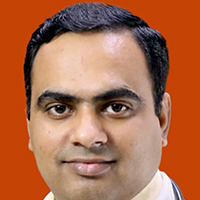

Successful Treatments
Clinics
Doctors
What is Child Asthma?
Child Asthma (a variant of Asthma noted in children) is a chronic respiratory disease characterised by inflammation and narrowing of the airways in the lung. These airways are responsible for bringing air into and out of the lungs, which become swollen and lead to the production of excess mucus, thereby forcing breathing to become laboured.
This condition often causes wheezing, cough, chest tightness, and even shortness of breath in children. Child Asthma can significantly affect any child's daily life activities, sleeping patterns, schooling, and quality of living. This is one of the most common chronic illnesses for children worldwide, with millions of children infected.
Jiva's evidence-based Ayurveda treatments promote holistic well-being by focusing on the causative basis of Child Asthma and by balancing the governing energies - Vata, Pitta, and Kapha, as well as restoring balance among the mind, body, and spirit. In the principles of Ayurveda, asthma is often considered an issue resulting from imbalances created by Kapha; it's the cause that brings mucus and blockage as well as Vata (relating to movement and airflow).
These imbalances may result from improper diet, exposure to cold and damp environment, weak Agni, or emotional stress. To ensure holistic relief, Advanced Ayurvedic Treatments by Jiva involve HACCP-licensed Ayurvedic medications for the treatment of Child Asthma, alongside time-tested Ayurvedic therapies, yoga, meditation and counseling for lifestyle and diet management so that best results are achieved.
Common Causes of Child Asthma
Generally, doctors fail to understand and are confused about the real reason why some kids get it and some don't. But some common reasons might raise a child's risk of developing asthma. Understanding these factors might help parents manage asthma symptoms in kids. Here are the common Child Asthma causes:
- Family History: Kids with parents or siblings that have asthma or allergies are at greater risk of acquiring asthma themselves.
- Early Infections: Having specific airway infections when young could result in asthma.
- Environmental factors: Being around aggravating things like smoke from cigarettes, pollution, or too much dust can make asthma more likely to develop.
- Sensitive Immune System: Some children have an immune system which is extremely reactive to common things which might make their airways swollen and filled with mucus.
Jiva Ayunique™ Treatment Philosophy - A Holistic Approach to Child Asthma
Jiva Ayurveda offers holistic Child Asthma treatment in Ayurveda using evidence-based approaches. The treatment plans are customised to target the very root causes of the disease, and instead of just treating symptoms, they focus on holistic healing, balance and stability in totality.
Core Principles of the Jiva Ayunique™ Treatment Philosophy
- HACCP certified Ayurvedic medicines: These are scientifically made blends that help to balance the body and promote emotional stability.
- Yoga, Meditation & Mindfulness: These relaxing practices promote mental health and total wellness.
- Ayurvedic Treatments: Therapies like Panchakarma and other kinds of massages to cleanse the body and support emotional balance.
- Diet and Lifestyle Changes: Expert suggestions on how to change your dietary habits and lifestyle for good health.
Ayurvedic Medicines for Child Asthma
Here are some of the best Ayurvedic medicines for child asthma:
Vasa (Adhatoda vasica)
Vasa has antitussive and expectorant qualities. It's a natural bronchodilator and also reduces coughing, wheezing and breathlessness. It also stimulates your child’s respiratory system so they can breathe better and easier.
Pushkaramula (Inula racemosa)
Pushkaramula is an expectorant that helps clear mucus from airways. Its anti-inflammatory action calms irritated tissues inside your lungs and decreases asthma attacks.
Pippali (Piper longum)
Pippali has a natural bronchodilator effect. It opens up air passages so your child can breathe easier if he has asthma.
Amalaki (Emblica officinalis)
Amalaki has anti-inflammatory and anti-anaphylactic activities. It strengthens your child’s immune system and helps to avoid frequent allergic reactions that cause asthma.
Guduchi (Tinospora cordifolia)
Guduchi is an immune modulator. This basically means that it decreases bronchospasms and increases your child's natural resistance to asthma triggers.
Bharangi (Clerodendrum serratum)
The juice of Bharangi roots is traditionally used for children's cough and asthma. It cools your child’s respiratory tract and soothes wheezing.
Kantakari (Solanum species)
Kantakari has anti-asthmatic and anti-inflammatory properties. It decreases airway swelling and increases airflow to your child’s lungs.
Bibhitaki
Bibhitaki has anti-asthmatic, antispasmodic, antitussive and expectorant benefits. It relieves coughing and loosens stuck mucus in your child’s lungs.
Shirisha (Albizia lebbeck)
Shirisha is used for children’s asthma and allergy-induced bronchospasm. It relaxes their airway muscles and prevents sudden asthma attacks.
Bala (Sida cordifolia)
Bala contains natural ephedrine-like compounds used for managing your child’s asthma and bronchitis. It functions as a bronchodilator and also reduces inflammation in their airway.
Gojihva (Onosma bracteatum)
Gojihva has anti-asthmatic properties and reduces airway inflammation, helping your children breathe easier with asthma.
Yashtimadhu (Glycyrrhiza glabra or Liquorice)
Yashtimadhu stimulates the production of cortisone in your child’s body. This has an anti-inflammatory effect on lungs and soothes their irritated airways.
Tulsi (Ocimum sanctum)
Tulsi acts as a bronchodilator and expectorant. It also damps allergic responses that cause asthma symptoms in your child.
Bharangi (Clerodendrum serratum)
This Ayurvedic herb is renowned for its many benefits. It works as an antihistamine, expectorant, bronchodilator and mast cell stabiliser to manage childhood asthma.
Dashmool (Root of 10 herbs)
As we can understand from the name, Dashmool contains ten roots which have anti-inflammatory and anti-asthmatic properties. It is used to strengthen your child’s lungs and prevent recurring asthma attacks.
Talisapatra (Abies webbiana)
Talisapatra is a bronchodilator, mucolytic, expectorant and antitussive. It clears mucus and helps your child breathe better.
Home Spices for Asthma Relief
- Jeeraka (Cuminum cyminum or Cumin): Cumin is a natural bronchodilator which helps to open up blocked airways.
- Cinnamon: Cinnamon loosens and forces mucus out of your child’s lungs.
- Sunthi (Zingiber officinalis or Ginger): Ginger has anti-allergic qualities and calms the respiratory system of your child.
- Maricha (Piper nigrum or Black Pepper): Black pepper stimulates your child’s lungs and clears congestion.
- Ela (Elettaria cardamomum or Cardamom): Cardamom functions like a bronchodilator and also eases breathing difficulties.
- Hingu (Ferula narthex or Asafoetida): Asafoetida relaxes your child’s tracheal muscles and therefore prevents asthma attacks.
- Haridra (Curcuma longa or Turmeric): Turmeric is anti-asthmatic and anti-inflammatory herb. It decreases lung inflammation and prevents allergies.
- Lashuna (Allium sativum or Garlic): Garlic possesses anti-inflammatory, decongestant and expectorant properties which can be helpful if your child is experiencing chest tightness or chest pains.
Ayurveda Treatment for Child Asthma
Ayurveda can holistically treat Child Asthma through methods of strengthening the respiratory system, immunity, balancing the energies (or doshas) in the body, alongside finding and fighting the root-cause of the illness. Ayurvedic treatments are highly effective in reducing the asthma attack frequency and intensity while improving lung function and enhancing the overall immunity of the child.
Ayurveda incorporates the use of a variety of herbs for medicinal usage during the treatment of Child Asthma. Here are some Ayurvedic herbs that can help with Child Asthma:
Anti-inflammatory herbs:
Herbs like Vasa (Adhatoda vasica), Kantakari (Solanum Xanthocarpum), Tulsi (Ocimum sanctum), and Turmeric (Curcuma longa) possess anti-inflammatory properties and are thereby quite effective in facilitating mucus-clearance and improving the respiratory capabilities while also enhancing the overall immunity.
Bronchodilator herbs:
Specific herbs like Vasa and Bharangi (Clerodendrum serratum) help in the relaxing of the bronchial muscles, so that respiration becomes smoother.
Immunomodulatory herbs:
These include Ashwagandha (Withania Somnifera), and Guduchi (Tinospora Cordifolia) that can enhance the immune system and reduce excess sensitivity of the body against allergens and irritants.
Digestive herbs:
Ensuring adequate wellbeing of the digestive system is also a vital part of the Ayurveda treatment philosophy. As per Ayurveda, undigested food may turn into toxins (commonly referred to as Ama) that aggravates respiratory issues. Ginger and trikatu preparation, containing ginger, black pepper, and long pepper, is prescribed for the improvement of the digestive system.
In addition, a qualified Ayurveda doctor may also prescribe a treatment like steam inhalation involving specific herbs and medicated oils, Nasya (pouring of medicated oils through nasal cavity), and Panchakarma (a five fold detoxification therapy) to allow for further cleansing and lasting relief.
Diet and Exercise Recommendations
In Ayurveda, diet and exercise play significant roles in recovery and holistic wellbeing. For effective management of Child Asthma, consider adding the following to your routine:
- Warm, cooked foods: These are easy to digest and tend not to make respiratory conditions worse. Foods in the form of soups, stews, or wholegrains are good choices.
- Avoid cold, processed, and heavy food: These tend to increase mucus production and exacerbate the symptoms of asthma. For example, avoid cold drinks, ice cream, fried foods, and processed snacks.
- Food with spices: These include ginger, turmeric, black pepper, cinnamon, and cloves to reduce inflammation, facilitate digestion, and clear the congestion.
- Encourage regular, gentle exercise: Walking, swimming, and yoga improve lung function in addition to general fitness, though strenuous exercise can exacerbate an acute asthmatic attack.
- Pranayama (Breathing Exercise): Pranayama like Bhastrika, alternate nostril breathing called Anuloma Viloma, Kapalabhati can make the lungs strong along with increasing and decreasing respiratory control that helps de-stress. Keep in mind, the training should be taken under the guidance of an experienced yoga trainer.
FAQs on Child Asthma
- What are the causes of asthma in children?
Common triggers include allergens (dust mites, pollen, pet dander, mould), irritants (smoke, pollution, strong odours, chemical fumes), respiratory infections (colds, flu), exercise, weather changes (cold air, humidity), and emotional stress.
- How is Child Asthma diagnosed?
Diagnosis is done through understanding of the medical history, physical examination, as well as pulse diagnosis.
- Is Child Asthma completely curable?
There is no cure for asthma, but Ayurvedic treatment can manage the symptoms well and reduce the frequency and severity of the attacks and enhance the quality of life in children. Most children find a drastic reduction in their symptoms, and many of them even outgrow the asthma condition.
- Can diet aggravate Child Asthma?
Indeed, certain foods may aggravate asthma symptoms in certain children. It is essential to identify and avoid these trigger foods. Common food triggers include dairy products, processed foods, artificial additives, and specific preservatives.
- What is the role of stress in Child Asthma?
Stress can worsen asthma symptoms by triggering inflammation and constricting the airways. Relaxation techniques, mindfulness practices, and stress management can be beneficial.
- Are there potential side-effects of Ayurvedic treatment for Child Asthma?
Ayurvedic treatment is normally risk-free when prescribed by an experienced, certified Ayurveda physician. Still, it is important that you inform your Ayurvedic doctor of any existing conditions or medicines that your child is currently receiving.
- What is Ayurveda's perspective on the causes of Child Asthma?
According to Ayurveda, the most common causes of asthma are imbalances in doshas such as Kapha and Vata. This could be due to improper diet, exposure to cold and damp environment, weakened digestive fire or Agni, and emotional stress. Some Ayurvedic herbs are usually prescribed in the treatment of Childhood Asthma. Among them are the commonly used Vasa (Adhatoda vasica), Kantakari (Solanum Xanthocarpum), Tulsi (Ocimum sanctum), Turmeric (Curcuma longa), Bharangi (Clerodendrum serratum), Ashwagandha (Withania somnifera), and Guduchi (Tinospora Cordifolia).
- How can I prevent asthma attacks in my child?
Stay away from the familiar triggers, make sure the child appropriately uses all prescribed medications, practice avoidance of dust and allergens in the immediate environment, and have regular check-ups with a physician.
- What lifestyle changes can help manage child asthma?
It is beneficial to avoid exposure to smoke, engage in regular but light physical activities, consume nourishing foods, and perform breathing exercises which are helpful in the prevention and management of asthma.
- Can diet impact child asthma?
Yes, following an anti-inflammatory diet which includes adequate fruits and vegetables and omega-3 fatty acids can reduce factors leading to asthma inflammation and avoiding certain kinds of food can prevent asthma attacks., while avoiding foods that trigger allergies can prevent flare-ups.
- What are the best breathing exercises for child asthma?
Techniques such as diaphragmatic breathing and pursed lip breathing can help control breathing, reduce shortness of breath, and strengthen the lungs.
- How long does Ayurvedic treatment take to show results?
The effectiveness and response time can vary depending on the individual's condition and consistency in following the treatment plan, but some may notice improvements within a few weeks.
- Can my child play sports if they have asthma?
Absolutely, children with asthma can play sports, provided their asthma is well-managed and monitored. Exercise, when done safely, can strengthen the respiratory system and improve overall health.
- How do I know if my child's asthma is getting worse?
Increasing use of rescue inhalers, frequent coughing or wheezing, trouble breathing, or disturbances in sleep due to asthma symptoms are signs that your child's asthma may be worsening and require a consultation with a healthcare provider.
FAQs
Common triggers include allergens like pollen, pet dander, dust mites, and mould, as well as cold air, smoke, respiratory infections, and strong emotions that can lead to stress or excitement.
Stay away from the familiar triggers, make sure the child appropriately uses all prescribed medications, practice avoidance of dust and allergens in the immediate environment, and have regular check-ups with a physician.
While Ayurveda may not claim that but it helps in managing Asthma symptoms naturally. The principles of Ayurveda will help to alleviate the symptoms to a significant extent by diet and lifestyle changes.
It is beneficial to avoid exposure to smoke, engage in regular but light physical activities, consume nourishing foods, and perform breathing exercises which are helpful in the prevention and management of asthma.
Yes, following an anti-inflammatory diet which includes adequate fruits and vegetables and omega-3 fatty acids can reduce factors leading to asthma inflammation and avoiding certain kinds of food can prevent asthma attacks., while avoiding foods that trigger allergies can prevent flare-ups.
Techniques such as diaphragmatic breathing and pursed lip breathing can help control breathing, reduce shortness of breath, and strengthen the lungs.
When administered under the guidance of a qualified practitioner, Ayurvedic treatments are generally safe, but it's crucial to discuss any new treatments with your child's physician to avoid conflicts with existing medications.
The effectiveness and response time can vary depending on the individual's condition and consistency in following the treatment plan, but some may notice improvements within a few weeks.
Absolutely, children with asthma can play sports, provided their asthma is well-managed and monitored. Exercise, when done safely, can strengthen the respiratory system and improve overall health.
Increasing use of rescue inhalers, frequent coughing or wheezing, trouble breathing, or disturbances in sleep due to asthma symptoms are signs that your child's asthma may be worsening and require a consultation with a healthcare provider.
Top Ayurveda Doctors
Our Happy Patients
Social Timeline
Related Disease
Latest Blogs
- क्या अचानक बढ़ता दर्द और जोड़ों की लालिमा गाउट की निशानी है? शरीर में जमा अम्ल की भूमिका समझिए
- Migraine और भोजन का समय: देर से खाना सिरदर्द को क्यों बढ़ा देता है?
- क्या एंटीबायोटिक लेने के बाद पाचन पूरी तरह बिगड़ गया? आयुर्वेद के अनुसार Colitis के उपचार जानें
- अगर मामूली आहार भी पाचन तंत्र सहन न कर पाए तो Colitis को हल्का क्यों नहीं मानना चाहिए? आयुर्वेदिक दृष्टि से जानें
- लंबे समय से सक्रिय Colitis क्यों शरीर की रिकवरी क्षमता को कमज़ोर कर देती है? आयुर्वेदिक नज़र से जानें
- नॉर्मल एंडोस्कोपी, नॉर्मल रिपोर्ट्स… फिर भी रोज़ दर्द—IBS में गलत इलाज कैसे बीमारी को Chronic बना देता है! आयुर्वेदिक उपचार समझें
- क्या बाहर का खाना या मसालेदार भोजन आपके IBS को तुरंत ट्रिगर कर देता है? आयुर्वेदिक दृष्टि से समझें और कब Ayurvedic doctor से मिलना चाहिए जानें
- IBS में दवाइयाँ काम क्यों नहीं करतीं? आयुर्वेदिक कारण और उपचार समझें
- कभी कब्ज़, कभी दस्त: यह सिर्फ पाचन नहीं, पूरे सिस्टम का असंतुलन हो सकता है! जानें कब Ayurvedic doctor से मिलना ज़रूरी हो जाता है
- क्या सर्दियों में दवाइयों के बावजूद साँस पूरी नहीं खुलती? अस्थमा की जड़ आयुर्वेद से समझें
- क्या धूल, धुआँ या परफ्यूम से तुरंत साँस लेने में तकलीफ़ होती है? Asthma के ट्रिगर आयुर्वेद की नज़र से समझें
- सर्दियों में अस्थमा क्यों ज़्यादा बिगड़ जाता है? ठंडी हवा और कफ-वृद्धि का आयुर्वेदिक कारण जानें
- क्या ठंडी हवा लगते ही सीने में जकड़न और साँस लेने में परेशानी होती है? अस्थमा को आयुर्वेद की नज़र से जानें
- क्या सुबह उठते ही बलगम के साथ खाँसी आना अस्थमा का संकेत है? आयुर्वेद से समझें
- क्या लंबे समय तक लैक्सेटिव का उपयोग आपकी कब्ज़ को और जटिल बना रहा है? आयुर्वेदिक समाधान जानें
- क्या गैस, पेट फूलना और सिरदर्द का साथ में होना Chronic Constipation का क्लासिक पैटर्न है? आयुर्वेदिक व्याख्या समझें
- क्या सुबह नींद खुलते ही पेट साफ न होना ‘धीमी अग्नि’ का संकेत है? दीर्घकालिक कब्ज़ में आयुर्वेदिक कारण जानें next topic
- क्या लंबे समय तक बैठकर काम करने से आपकी कब्ज़ लगातार बढ़ रही है? आयुर्वेदिक दृष्टिकोण देखें
- क्या कब्ज़ के चलते आपकी नींद, ऊर्जा और पाचन सब प्रभावित हो रहे हैं? आयुर्वेद में इसके मूल कारण और ज़रूरी उपाय जानें
- क्या तनाव और चिंता भी Chronic Constipation का छुपा हुआ कारण बन सकते हैं? आयुर्वेदिक दृष्टि देखें
Ayurvedic Doctor In Top Cities
- Ayurvedic Doctors in Bangalore
- Ayurvedic Doctors in Pune
- Ayurvedic Doctors in Delhi
- Ayurvedic Doctors in Hyderabad
- Ayurvedic Doctors in Indore
- Ayurvedic Doctors in Mumbai
- Ayurvedic Doctors in Lucknow
- Ayurvedic Doctors in Kolkata
- Ayurvedic Doctors in Patna
- Ayurvedic Doctors in Vadodara
- Ayurvedic Doctors in Ahmedabad
- Ayurvedic Doctors in Chandigarh
- Ayurvedic Doctors in Gurugaon
- Ayurvedic Doctors in Jaipur
- Ayurvedic Doctors in Kanpur
- Ayurvedic Doctors in Noida
- Ayurvedic Doctors in Ranchi
- Ayurvedic Doctors in Bhopal
- Ayurvedic Doctors in Ludhiana
- Ayurvedic Doctors in Dehradun

























